第96章
Occupations-Traduttore traditore-Ode to the Mist-Apple and pear-Reviewing-Current literature-Oxford-like manner-Aplain story-Ill-regulated mind-Unsnuffed candle-Strange dreams.
I COMPILED the Chronicles of Newgate;I reviewed books for the Review established on an entirely new principle;and I occasionally tried my best to translate into German portions of the publisher's philosophy.In this last task I experienced more than one difficulty.I was a tolerable German scholar,it is true,and I had long been able to translate from German into English with considerable facility;but to translate from a foreign language into your own is a widely different thing from translating from your own into a foreign language;and,in my first attempt to render the publisher into German,I was conscious of making miserable failures,from pure ignorance of German grammar;however,by the assistance of grammars and dictionaries,and by extreme perseverance,I at length overcame all the difficulties connected with the German language.But,alas!another difficulty remained,far greater than any connected with German-a difficulty connected with the language of the publisher-the language which the great man employed in his writings was very hard to understand;I say in his writings-for his colloquial English was plain enough.Though not professing to be a scholar,he was much addicted,when writing,to the use of Greek and Latin terms,not as other people used them,but in a manner of his own,which set the authority of dictionaries at defiance;the consequence was that I was sometimes utterly at a loss to understand the meaning of the publisher.Many a quarter of an hour did I pass at this period,staring at periods of the publisher,and wondering what he could mean,but in vain,till at last,with a shake of the head,I would snatch up the pen,and render the publisher literally into German.Sometimes I was almost tempted to substitute something of my own for what the publisher had written,but my conscience interposed;the awful words,Traduttore traditore,commenced ringing in my ears,and I asked myself whether I should be acting honourably towards the publisher,who had committed to me the delicate task of translating him into German;should I be acting honourably towards him,in making him speak in German in a manner different from that in which he expressed himself in English?No,I could not reconcile such conduct with any principle of honour;by substituting something of my own in lieu of these mysterious passages of the publisher,I might be giving a fatal blow to his whole system of philosophy.
Besides,when translating into English,had I treated foreign authors in this manner?Had I treated the minstrels of the Kaempe Viser in this manner?-No.Had I treated Ab Gwilym in this manner?Even when translating his Ode to the Mist,in which he is misty enough,had I attempted to make Ab Gwilym less misty?No;on referring to my translation,I found that Ab Gwilym in my hands was quite as misty as in his own.Then,seeing that I had not ventured to take liberties with people who had never put themselves into my hands for the purpose of being rendered,how could I venture to substitute my own thoughts and ideas for the publisher's,who had put himself into my hands for that purpose?Forbid it every proper feeling!-so I told the Germans,in the publisher's own way,the publisher's tale of an apple and a pear.
I at first felt much inclined to be of the publisher's opinion with respect to the theory of the pear.After all,why should the earth be shaped like an apple,and not like a pear?-it would certainly gain in appearance by being shaped like a pear.A pear being a handsomer fruit than an apple,the publisher is probably right,thought I,and I will say that he is right on this point in the notice which I am about to write of his publication for the Review.
And yet I don't know-said I,after a long fit of musing-I don't know but what there is more to be said for the Oxford theory.The world may be shaped like a pear,but I don't know that it is;but one thing I know,which is,that it does not taste like a pear;I have always liked pears,but I don't like the world.The world to me tastes much more like an apple,and I have never liked apples.
I will uphold the Oxford theory-besides,I am writing in an Oxford Review,and am in duty bound to uphold the Oxford theory.
So in my notice I asserted that the world was round;I quoted Scripture,and endeavoured to prove that the world was typified by the apple in Scripture,both as to shape and properties.'An apple is round,'said I,'and the world is round-the apple is a sour,disagreeable fruit;and who has tasted much of the world without having his teeth set on edge?'I,however,treated the publisher,upon the whole,in the most urbane and Oxford-like manner;complimenting him upon his style,acknowledging the general soundness of his views,and only differing with him in the affair of the apple and pear.
I did not like reviewing at all-it was not to my taste;it was not in my way;I liked it far less than translating the publisher's philosophy,for that was something in the line of one whom a competent judge had surnamed Lavengro.I never could understand why reviews were instituted;works of merit do not require to be reviewed,they can speak for themselves,and require no praising;works of no merit at all will die of themselves,they require no killing.The Review to which I was attached was,as has been already intimated,established on an entirely new plan;it professed to review all new publications,which certainly no Review had ever professed to do before,other Reviews never pretending to review more than one-tenth of the current literature of the day.